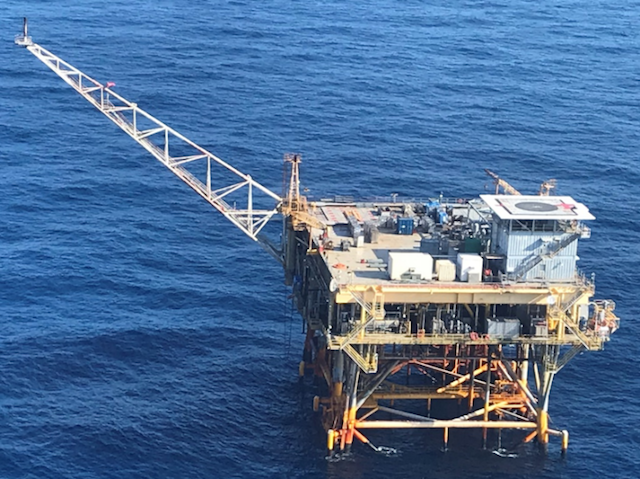The Bureau of Safety and Environmental Enforcement (BSEE) released the panel investigation report last week on the 2020 platform incident in the Gulf of Mexico that resulted in a fatality.
The incident occurred on Ewing Bank, Block 826, Platform A, operated by Fieldwood Energy LLC, on May 16, 2020, approximately 60 miles south of the Louisiana coast in the Gulf.
The incident that resulted in a single fatality occurred while a Fluid Crane and Construction Inc. (FCC) crew was in the process of replacing grating on the casing deck of Ewing Bank, Block 826, Platform A. Fieldwood contracted FCC to replace the grating on the casing deck after April 2018 and November 2019 Level I surveys of the platform revealed a grade of “C-Poor” on approximately 30% and 60% of the grating on the casing deck, respectively. Fieldwood conducted its own audit of the platform in December 2019. To address the findings, the casing deck was placed out of service until all of the grating could be replaced. Hard barricades placed at both stairways were used to access the deck.
The BSEE panel, which included BSEE subject matter experts, engineers, inspectors and specialized investigators, conducted its investigation of the incident to determine the cause and contributing factors that led to the fatality of an FCC crewmember contracted by Fieldwood.
After a thorough investigation and analysis of the incident, BSEE’s panel made several recommendations to reduce the likelihood of similar events in the future.
The panel identified the following as probable causes of the incident:
· Fieldwood failed to maintain all walking surfaces on the facility in a safe condition.
· Fieldwood failed to ensure that FCC’s Safe Work Practices (SWPs)met or exceeded their own SWPs.
· Supervisors failed to fulfill their intended responsibilities within the relevant, established SWPs.
· Personnel performing the job failed to adhere to the requirements of the JSA.
The panel identified the following as contributing causes of the incident:
· The JSA process was not controlled.
· Construction crew members followed the instructions of personnel who were not in a position of authority.
· Complacency at the jobsite allowed for unnecessary risk exposure.
· The fire watch either did not have or did not use a personal communication radio to convey to the construction crew and other platform personnel that the victim was in danger in a timely manner.
The following list contains some of the key recommendations identified as a result of the investigative findings detailed within this report:
· All facility walking and working surfaces should be regularly inspected and maintained to ensure they are in a safe condition.
· Operators must perform an internal review of their contractors’ Safety and Environmental Management System (SEMS) programs to suitably and adequately identify gaps in a bridging agreement. Responsibilities must be clearly assigned. These bridging agreements should be periodically reviewed to ensure continued effectiveness.
· Supervisors should be trained, skilled, and knowledgeable in their assigned duties and responsibilities. They should take an active role in task planning, hazard analysis, and supervision of work.
· JSA training should be refreshed on a periodic basis.
· A clear delegation of authority should be communicated to all personnel. · Construction crews should be trained on the dangers of compromised grating and the hazards associated with ripped grating.
· Clear signage conveying fall protection requirements should be posted on or near barricades, where necessary.
· Consider entry logs, maintained by a fire (or hole) watch or job site supervisor, that document when specific personnel enter and/or exit barricaded areas.
· Fire (and hole) watches should have personal communication radios for contact with their assigned crew. Also, consider in-ear hearing protection, with radio hookup capability, so that construction personnel in loud environments can be alerted to dynamic situations.
· Personnel should exercise Stop Work Authority (SWA) immediately upon notice that proper Personal Protective Equipment (PPE) is not in use and the job is unsafe.
To read more about the panel investigation including BSEE’s recommendations, the full report can be found here at BSEE PANEL REPORT 2022-001.
A BSEE Safety Alert has been sent to offshore operators and can be found here at BSEE Safety Alert 427.




